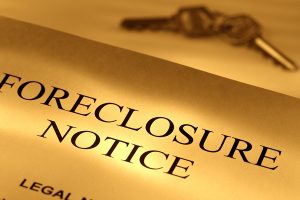Act To Stop Foreclosure

Illinois is a judicial foreclosure state. If you default on a few mortgage payments, you can expect the lender to take legal foreclosure action against you. Before that happens to you in the Chicago area, discuss your mortgage situation with an experienced Chicago foreclosure lawyer. Bankruptcy can protect you against foreclosure, but a good foreclosure lawyer may be able to recommend less drastic and more appropriate alternatives. A judicial foreclosure in Illinois typically happens this way:
1. You miss several mortgage payments. A lender may foreclose after one missed payment, but most lenders will wait until it appears that you can’t get back on track with payments.
2. The lender will send you a notice of intent that foreclosure proceedings will begin, usually within ten days. The notice usually provides one last chance to bring your mortgage payments up to date.
3. When the notice period expires, the lender may file a lawsuit, and you’ll be notified.
4. You can respond to the lawsuit by taking your own legal action, such as filing for an emergency bankruptcy.
5. If you take no action to stop foreclosure, a judge will enter a judgment of foreclosure, allowing the property to be sold at auction. At that point, the lender may begin eviction proceedings or may allow you to remain until the housing market improves, but you can expect to be evicted.
Bankruptcy is one way that homeowners can stop a foreclosure. An automatic stay is issued when a bankruptcy is filed, and it prevents mortgage lenders from continuing to act against you. Bankruptcy isn’t your only alternative, but if you’re having trouble with mortgage payments in the Chicago area, talk to a good Chicago foreclosure lawyer before the situation deteriorates. The longer you wait to act, the fewer alternatives will be available to you, so don’t wait to make the call.


